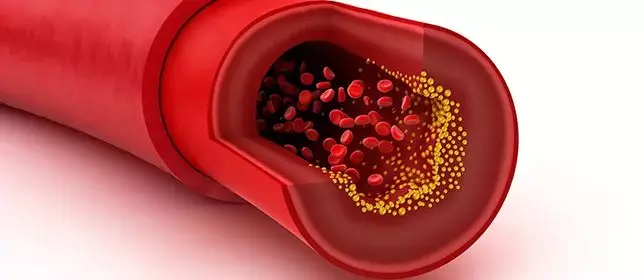- Home
- Medical news & Guidelines
- Anesthesiology
- Cardiology and CTVS
- Critical Care
- Dentistry
- Dermatology
- Diabetes and Endocrinology
- ENT
- Gastroenterology
- Medicine
- Nephrology
- Neurology
- Obstretics-Gynaecology
- Oncology
- Ophthalmology
- Orthopaedics
- Pediatrics-Neonatology
- Psychiatry
- Pulmonology
- Radiology
- Surgery
- Urology
- Laboratory Medicine
- Diet
- Nursing
- Paramedical
- Physiotherapy
- Health news
- Fact Check
- Bone Health Fact Check
- Brain Health Fact Check
- Cancer Related Fact Check
- Child Care Fact Check
- Dental and oral health fact check
- Diabetes and metabolic health fact check
- Diet and Nutrition Fact Check
- Eye and ENT Care Fact Check
- Fitness fact check
- Gut health fact check
- Heart health fact check
- Kidney health fact check
- Medical education fact check
- Men's health fact check
- Respiratory fact check
- Skin and hair care fact check
- Vaccine and Immunization fact check
- Women's health fact check
- AYUSH
- State News
- Andaman and Nicobar Islands
- Andhra Pradesh
- Arunachal Pradesh
- Assam
- Bihar
- Chandigarh
- Chattisgarh
- Dadra and Nagar Haveli
- Daman and Diu
- Delhi
- Goa
- Gujarat
- Haryana
- Himachal Pradesh
- Jammu & Kashmir
- Jharkhand
- Karnataka
- Kerala
- Ladakh
- Lakshadweep
- Madhya Pradesh
- Maharashtra
- Manipur
- Meghalaya
- Mizoram
- Nagaland
- Odisha
- Puducherry
- Punjab
- Rajasthan
- Sikkim
- Tamil Nadu
- Telangana
- Tripura
- Uttar Pradesh
- Uttrakhand
- West Bengal
- Medical Education
- Industry
Statins reduce Atherosclerotic risk by increasing densification of Plaques: JAMA

The burden of atherosclerosis in the coronary tree is a strong predictor of future coronary events. High plaque volumes are associated with a higher future risk of heart disease, but the density of the plaque can mitigate this risk.
A recent study suggests that statin use transforms the coronary plaque toward high-density calcium thus slowing progression toward more advanced disease. The study findings were published in the journal JAMA Cardiology on August 18, 2021.
Previous studies have shown that increasing calcium density was associated with slower overall plaque progression. Based on previous study findings the authors wrote, "Low-density calcium may not portend the same low-risk status as higher-density calcium, such as 1K plaque." To further examine, Dr Alexander van Rosendael and his team conducted a study PARADIGM, to assess whether alterations in plaque across a range of density measurements provide a more detailed understanding of atherosclerotic disease progression.
PARADIGM was conducted from 2013 to 2016 at 13 sites in 7 countries. The researchers included a total of 857 patients who underwent serial coronary computed tomography angiography 2 or more years apart and had quantitative measurements of coronary plaques throughout the entire coronary artery tree. The major outcome assessed was a progression of plaque composition of individual coronary plaques. They categorized plaques into the following six types according to attenuation (expressed in Hounsfield units [HU]):
1. Low attenuation (-30 to 75 HU)
2. Fibro-fatty (76 HU to 130 HU)
3. Fibrous (131 HU to 350 HU)
4. Low-density calcium (351 HU to 700 HU)
5. High-density calcium (701 HU to 1,000 HU)
6. 1K (> 1,000 HU)
They assessed 2,458 coronary lesions, over two-thirds of which were in patients treated with statins. They evaluated the plaque progression rates of these 6 compositional plaque types according to the interaction between statin use, baseline plaque volume and calcium density.
Key findings of the study were:
- Upon analysis, the researchers found that untreated coronary lesions increased in volume over time for all 6 compositional types.
- They also found that statin therapy was associated with
◊ Decreased volume in low-attenuation plaque (β, −0.02)
◊ Fibro-fatty plaque (β, −0.03)
◊ Greater progression of high-density calcium plaque (β, 0.02) and
◊ 1K plaque (β, 0.02).
- When analyses were restricted to lesions without low-attenuation plaque or fibro-fatty plaque at baseline, they noted that statin therapy was not associated with a change in overall calcified plaque volume (β, −0.03) but was associated with a transformation toward more dense calcium.
- Upon interaction analysis between baseline plaque volume and calcium density, they found that more dense coronary calcium was associated with less plaque progression.
The authors concluded, "The results suggest an association of statin use with greater rates of transformation of coronary atherosclerosis toward high-density calcium. A pattern of slower overall plaque progression was observed with increasing density. All findings support the concept of reduced atherosclerotic risk with increased densification of calcium."
For further information:
Dr Kartikeya Kohli is an Internal Medicine Consultant at Sitaram Bhartia Hospital in Delhi with super speciality training in Nephrology. He has worked with various eminent hospitals like Indraprastha Apollo Hospital, Sir Gangaram Hospital. He holds an MBBS from Kasturba Medical College Manipal, DNB Internal Medicine, Post Graduate Diploma in Clinical Research and Business Development, Fellow DNB Nephrology, MRCP and ECFMG Certification. He has been closely associated with India Medical Association South Delhi Branch and Delhi Medical Association and has been organising continuing medical education programs on their behalf from time to time. Further he has been contributing medical articles for their newsletters as well. He is also associated with electronic media and TV for conduction and presentation of health programs. He has been associated with Medical Dialogues for last 3 years and contributing articles on regular basis.
Dr Kamal Kant Kohli-MBBS, DTCD- a chest specialist with more than 30 years of practice and a flair for writing clinical articles, Dr Kamal Kant Kohli joined Medical Dialogues as a Chief Editor of Medical News. Besides writing articles, as an editor, he proofreads and verifies all the medical content published on Medical Dialogues including those coming from journals, studies,medical conferences,guidelines etc. Email: drkohli@medicaldialogues.in. Contact no. 011-43720751


